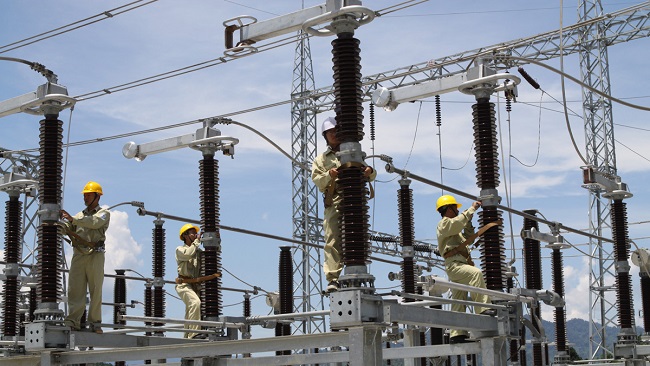Vietnam turns semiconductor vision into action
The global semiconductor industry is being reshaped by geopolitical tensions, shifting supply chains, and the surge of digital technologies.




A big challenge is how to mobilize the large investment requirements, estimated at around $8 billion annually to meet fast growing power demand, according to country director of World Bank in Vietnam Ousmane Dione.

Statistics indicated that since 2010, the sector invested about $80 billion in generation, transmission and distribution and between now to 2030 another $150 billion needs to be raised.
Electricity consumption remains comparatively low in international standards. For example, per capita electricity consumption is currently about 1,700-kilowatt hour a year - which is one third of China or one fifth of Australia.
"As the economy continues to grow strongly and as the Vietnamese become more affluent, electricity demand will continue to grow at about 8 percent per year for the next decade," Ousmane Dione said.
He added, "Under the Bank’s Maximizing Finance for Development (MFD) Initiative we are supporting the Government to find and implement solutions to bring in more private and commercial financing for the energy sector."
However, the MFD initiative is particularly relevant in the context of Vietnam’s recent international development association (IDA), which is the part of the WB that helps the world's poorest countries, graduation and sovereign borrowing constraints due to the Government’s debt ceiling policy.
According to the WB's representative, three key pillars needed to be tackled to mobilize more private and commercial finance in the power sector.
They includes developing and launching a competitive innovation partnership program in power generation as part of developing Power Sector Development Plan 8 with a contractual framework that attracts both international and domestic investment at scale, preparing electricity and gas state owned enterprises to access commercial finance through credit ratings and non-sovereign bond issuance, and supporting banking and capital market reforms to improve availability of local currency finance which is critical for both project and corporate finance for energy investment projects.
"Challenges the power sector needs to overcome over the next two decades are substantial to ensure it achieves its goals to provide sustainable, clean, affordable and reliable power supply to the people of Vietnam," Ousmane Dione said.
"One key question is how to meet future energy demand, while also complying with government’s objectives to reduce greenhouse gas emissions and meet its climate change targets. That of course refers to the contentious issue on the role of coal in the future energy mix," he added.
As the economy continues to grow strongly and as the Vietnamese become more affluent, electricity demand will continue to grow at about 8 per cent per year for the next decade.
Electricity tariffs remain below full cost recovery levels and EVN does not receive direct subsidies from the government.
On power sector reform, about a decade ago, the government set out a clear roadmap for implementing competition and restructuring the sector. The motivation was to move from a vertically integrated monopolistic market structure to a fully competitive power market.
“We are half way through implementation and by 2020 the wholesale electricity market will be fully operational," Ousmane Dione said.
"Experience with market liberalization have been positive to date contributing to a well-run power sector public utility Vietnam Electricity (EVN), which is technically and operationally sound, but also allowing private sector participation in generation,” added he.
The global semiconductor industry is being reshaped by geopolitical tensions, shifting supply chains, and the surge of digital technologies.
The change in APA approval authority is expected to shorten processing time and enhance business proactiveness in international tax negotiations.
As hybrid cloud systems grow more complex, Vietnamese enterprises are struggling to detect cybersecurity threats moving laterally within their own networks.
The submission of the draft resolution on Vietnam’s international financial center to the National Assembly heralds a new developmental era for the country.
More than just running a 5-star resort, Kristian Petersen is redefining the art of hospitality with a humane and sustainable leadership philosophy.
For Tyna Huynh, co-founder of Drinkizz, organic is not just a food choice but a way of life that fosters a deep connection between people, nature and community.